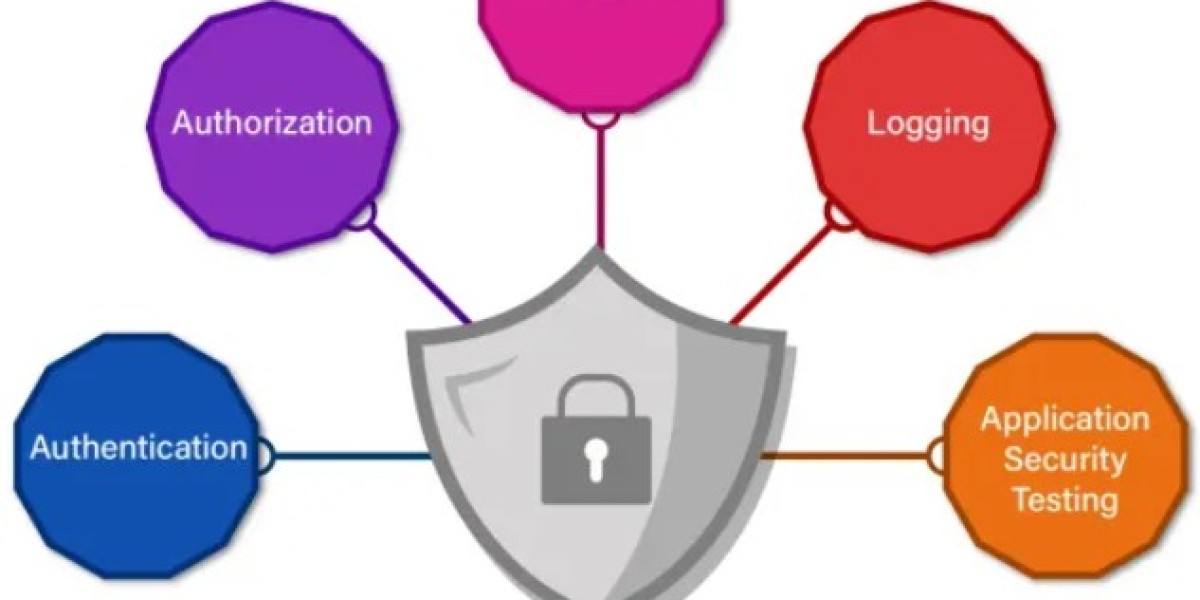Application Security Market: A Comprehensive Overview
Market Overview
The application security market has seen rapid growth in recent years, driven by the increasing reliance on software applications across various industries. Application security involves measures taken to improve the security of an application by finding, fixing, and preventing security vulnerabilities. With the proliferation of cyber threats, ensuring robust application security has become paramount for organizations to protect sensitive data and maintain customer trust.
Application Security Market is projected to grow from USD 11.605191 Billion in 2024 to USD 34.57 billion by 2032, exhibiting a compound annual growth rate (CAGR) of 14.62% during the forecast period (2024 - 2032). Additionally, the market size for Application Security was valued at USD 9.93 billion in 2023.
Key Market Segments
The application security market can be segmented based on solutions, services, deployment modes, organization size, and industry verticals.
Request To Free Sample of This Strategic Report - https://www.marketresearchfuture.com/sample_request/3624
By Solutions
Static Application Security Testing (SAST): SAST tools analyze source code to detect security vulnerabilities. This is done early in the development process, making it a proactive approach.
Dynamic Application Security Testing (DAST): DAST tools assess applications in their running state, simulating attacks to identify vulnerabilities from an external perspective.
Runtime Application Self-Protection (RASP): RASP tools integrate with an application to provide real-time security monitoring and protection.
By Services
- Consulting Services: These include expert guidance on implementing robust application security strategies.
- Managed Services: These services offer continuous monitoring and management of application security.
- Training and Education Services: Training programs aimed at educating developers and IT staff on best practices in application security.
By Deployment Modes
- On-premises: Solutions deployed within an organization’s own infrastructure.
- Cloud-based: Solutions offered as a service over the cloud, providing scalability and flexibility.
By Organization Size
- Small and Medium-sized Enterprises (SMEs): These organizations are increasingly adopting application security solutions to protect against data breaches.
- Large Enterprises: Larger organizations with complex IT environments and higher regulatory pressures.
By Industry Verticals
- Banking, Financial Services, and Insurance (BFSI): A major consumer of application security solutions due to the high sensitivity of financial data.
- Healthcare: The protection of patient data and adherence to regulations like HIPAA drive demand in this sector.
- Retail: With the rise of e-commerce, retail companies need to secure customer data and transaction information.
- IT and Telecommunications: Ensuring the security of software and networks is critical for these industries.
- Government and Defense: Protecting national security and citizen data is paramount.
- Industry Latest News
- Emergence of AI and Machine Learning
Artificial Intelligence (AI) and Machine Learning (ML) are revolutionizing application security. These technologies are being leveraged to predict and identify new threats, analyze large volumes of security data, and automate response actions. Companies like Darktrace and Vectra AI are at the forefront of integrating AI into security solutions.
Increased Regulatory Compliance
Governments worldwide are implementing stringent regulations to safeguard data. Regulations such as the General Data Protection Regulation (GDPR) in Europe, California Consumer Privacy Act (CCPA) in the USA, and others necessitate robust application security measures to ensure compliance.
Rise of DevSecOps
The DevSecOps movement integrates security practices within the DevOps process, ensuring that security is considered at every stage of software development. This approach is gaining traction as it promotes a culture of shared responsibility for security among developers and IT operations teams.
Key Companies
- IBM Corporation: Offers comprehensive application security solutions including AppScan for identifying vulnerabilities.
- Veracode: Known for its cloud-based platform that provides a wide range of application security testing solutions.
- Synopsys: Provides integrated solutions for identifying and managing security vulnerabilities in software.
- Checkmarx: Specializes in SAST and provides tools to secure the code development lifecycle.
- Micro Focus: Offers Fortify, a suite of application security solutions that includes SAST and DAST tools.
- Market Drivers
Ask for Customization - https://www.marketresearchfuture.com/ask_for_customize/3624
Increasing Cyber Threats
The frequency and sophistication of cyber attacks are escalating, compelling organizations to invest heavily in application security. High-profile data breaches and ransomware attacks highlight the critical need for robust security measures.
Digital Transformation
Organizations are increasingly adopting digital technologies to enhance business processes. This transformation necessitates the development and deployment of secure applications to protect digital assets and sensitive data.
Regulatory Requirements
Compliance with international and local regulations is a significant driver for the application security market. Companies need to adhere to data protection laws and standards, which often mandate stringent security practices.
Growing Adoption of Cloud-based Solutions
The shift towards cloud computing is driving the adoption of cloud-based application security solutions. These solutions offer advantages such as scalability, flexibility, and cost-effectiveness, making them attractive to businesses of all sizes.
Conclusion
The application security market is poised for continued growth, driven by the increasing complexity of cyber threats, the need for regulatory compliance, and the ongoing digital transformation across industries. With advancements in technologies like AI and the integration of security within the development lifecycle, the future of application security looks promising. Organizations must continue to prioritize and invest in robust security measures to protect their applications and data in an ever-evolving threat landscape.








